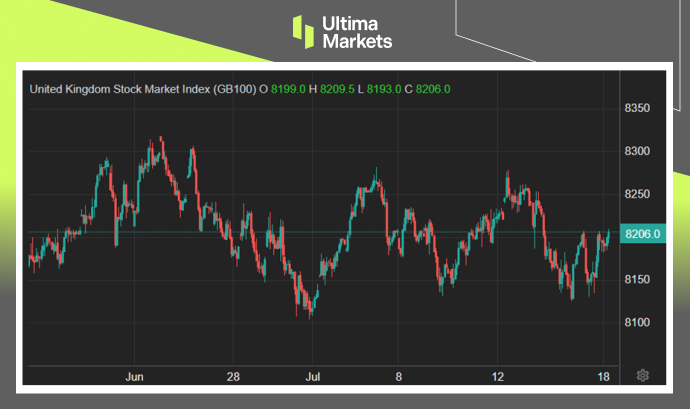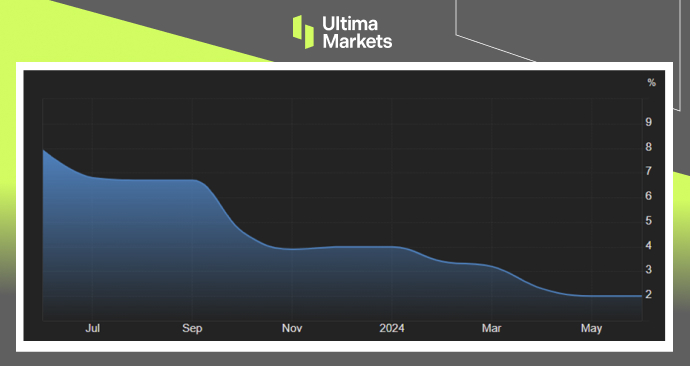You are visiting the website that is operated by Ultima Markets Ltd, a licensed investment firm by the Financial Services Commission “FSC” of Mauritius, under license number GB 23201593. Please be advised that Ultima Markets Ltd does not have legal entities in the European Union.
If you wish to open an account in an EU investment firm and protected by EU laws, you will be redirected to Ultima Markets Cyprus Ltd (the “CIF”), a Cyprus investment firm duly licensed and regulated by the Cyprus Securities and Exchange Commission with license number 426/23.

UK Price Rises Persist, FTSE Fluctuates, Sterling Nears Peak
TOPICSTags: British Pound Sterling, FTSE100, Inflation, UK
The FTSE 100 closed 0.28% higher on Wednesday, driven by gains across multiple sectors. Oil majors, miners, utilities, and defensive stocks such as pharmaceutical companies and tobacco firms all contributed to the index’s positive performance.
Burberry emerged as the standout performer, leading the index with a rise of over 4%. This surge was attributed to speculation surrounding recent insider buying activity, including another small director purchase reported on the day.
In the energy sector, oil giants BP and Shell saw notable gains of 1.4% and 0.8% respectively. These increases were primarily fueled by rising oil prices in the global market.

(FTSE 100 Index Monthly Chart)
The Consumer Prices Index (CPI) in the UK held steady at 2% in June, aligning with the Bank of England’s (BOE) target for the second consecutive month. However, this headline figure masked underlying concerns, particularly in the services sector where inflation remained stubbornly high at 5.7%.
These results diverged from economists’ expectations. The consensus forecast had anticipated a slight decrease in the headline rate to 1.9%. Moreover, the BOE had projected services inflation to be at 5.1%, significantly lower than the actual figure.
The persistence of inflationary pressures in the services sector suggests that while overall inflation is currently at the target, it may not remain there for long. This development could potentially delay the BOE’s plans to cut interest rates.
In response to these figures, financial markets adjusted their expectations. Traders reduced the probability of a rate cut on August 1st to approximately 30%, down from over 40% the day before. This shift in sentiment was reflected in the currency markets, with the British pound strengthening to $1.3, maintaining levels close to its one-year highs.

(UK Inflation Rate YoY%, Office for National Statistics)
Disclaimer
Comments, news, research, analysis, price, and all information contained in the article only serve as general information for readers and do not suggest any advice. Ultima Markets has taken reasonable measures to provide up-to-date information, but cannot guarantee accuracy, and may modify without notice. Ultima Markets will not be responsible for any loss incurred due to the application of the information provided.
Why Trade Metals & Commodities with Ultima Markets?
Ultima Markets provides the foremost competitive cost and exchange environment for prevalent commodities worldwide.
Start TradingMonitoring the market on the go
Markets are susceptible to changes in supply and demand
Attractive to investors only interested in price speculation
Deep and diverse liquidity with no hidden fees
No dealing desk and no requotes
Fast execution via Equinix NY4 server















